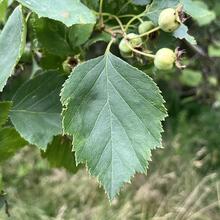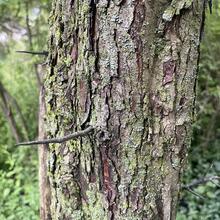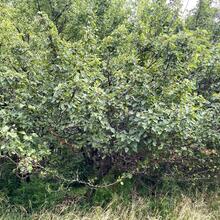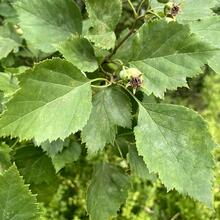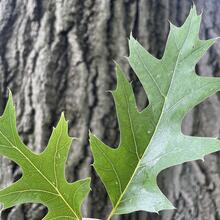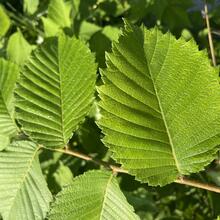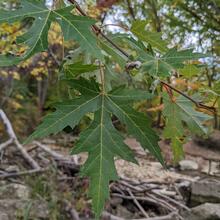Crataegus persimilis
Rosaceae
Showy white flowers followed by red fruits. Wide-spreading crown. Branches have large thorns. Hawthorn species are difficult to distinguish and sometimes hybridize. Use caution if seeking a particular species.
Summary
 Climate Tolerance
Climate Tolerance
NA
Wildlife Benefits
Nectar/pollen source for bees, butterflies, hummingbirds; fruit food source for birds, mammals; moth/butterfly host
Pollination Type
Pollinator
Plant Hardiness Zones
3 to 8
# Butterfly/Moths that use as host
154
Bloom Time
Spring (Apr-Jun)
 Shade/Sun Tolerance
Shade/Sun Tolerance
Full Sun to Part Shade: Receives 2 to 6 or more hours of direct sunlight
 Maximum Height
Maximum Height
Small (15-40 ft)
 Growth Rate
Growth Rate
Moderate: 1 ft- 2 ft per year
 Soil Type
Soil Type
Clay: Small sized particles. Long moisture retention and low nutrient availability.
Loam: Equal mix of clay, sand, and silt. Moderate moisture retention and high nutrient availability.
Sand: Large/coarse particles. Short moisture retention and low nutrient availability.
 Soil Moisture Tolerance
Soil Moisture Tolerance
Dry - Moist: Soil can be dry for periods of time and can retain little moisture for periods of time
Root - Fungal Association
Arbuscular mycorrhizae: Symbiotic relationship with fungi that exist on inside of plant root cells, facilitating nutrient uptake
Pest & Pathogen Risks
Medium; Cedar-hawthorn rust (should not be planted near red cedar)
 Urban Stress Tolerance
Urban Stress Tolerance
High: Tree can adapt to a variety of urban conditions and will grow well
Drought Tolerance
Tolerant: Tree will not become stressed during periods of drought
Coefficient of Conservatism
3
Native Status
OH-Native: Species is native to Ohio
NatureServe G-rank
G5
Plant Community Type
- Beech Mixed: Absent
- Oak Mixed: Absent
- Alluvial: Absent
- Red Maple Mixed: Absent
- Ruderal: Occasional
- Urban Tree Cover: Common
Bloom Color
White
Form
Tree
Shrub
 Lifespan
Lifespan
Medium: 100-250 years
Soil pH
Acid-Neutral (pH 6-7.5)
Wetland Indicator Status
FAC: Facultative, occurs in wetlands and non-wetlands
Soil Compaction Tolerance
Tolerant: Tree will not become stressed from soil being compacted
Heat Tolerance
Tolerant: Tree will not become stressed for increased temperature due to urban heat island effects
Salt Tolerant
Tolerant: Tolerant to both aerial salt spray and salt present in soil
Native County Status
Geauga
Lake
IUCN Red List Assessment
Critically Endangered
